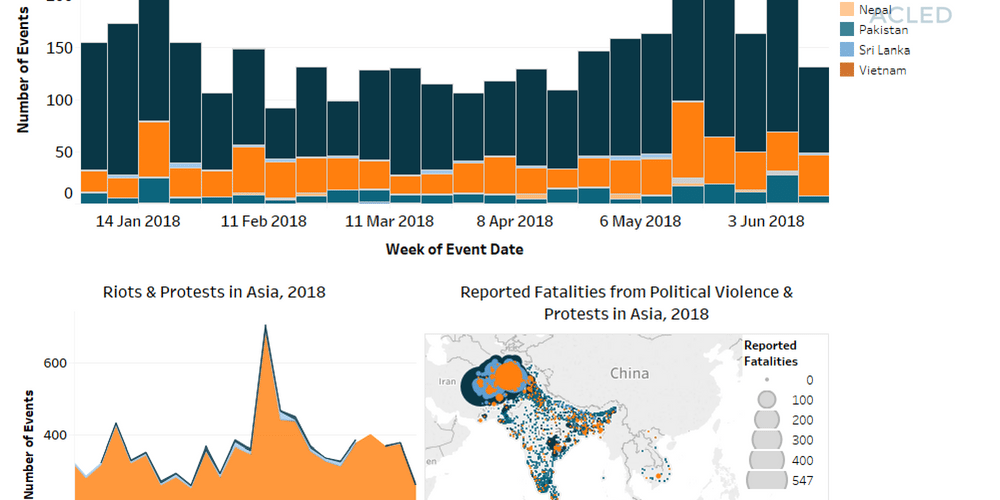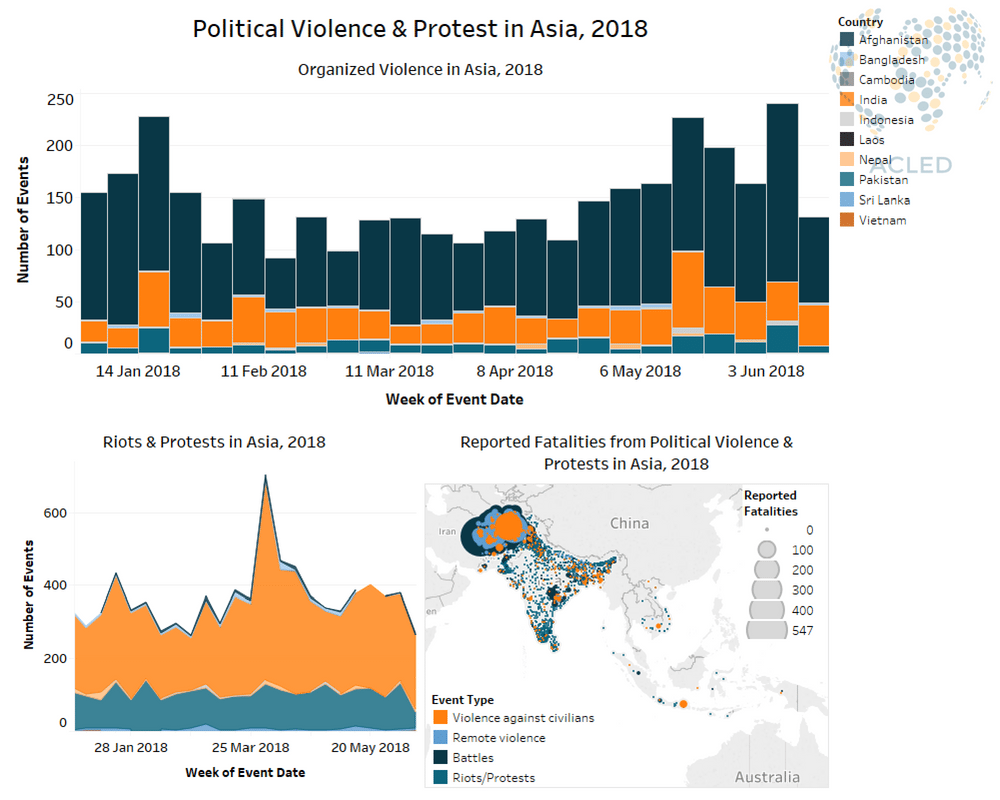During the week of Eid, overall levels of political violence decreased by 45% in South and Southeast Asia. The decrease in political violence was caused by a significant drop in reported events from Afghanistan (minus 52%) and Pakistan (minus 74%) – two high activity countries which also have a majority Muslim population – while violence levels remained static in India, including the majority Muslim state of Jammu & Kashmir.
It was a historic week in Afghanistan as the first ceasefire between the government and Taliban was observed over the Eid holidays. Afghan and NATO forces continued their campaign against other militant organizations, most notably when a US drone strike killed the leader of the Tehrik-i-Taliban Pakistan (TTP), Mullah Fazullah.
Despite the unilateral ceasefire by the Indian central government in the state of Jammu & Kashmir, militants continued to attack security forces and civilians last week. Most notably, militants killed the editor of a Kashmiri Newspaper, Shujaat Bukhari, and his two bodyguards in Srinagar city on June 14. Additionally, several incidents of vigilante violence, instigated by rumors on social media platforms around ‘child lifting’, were reported from India.
In Bangladesh, Shahzahan Bachchu, a publisher and writer urging for religious tolerance, was killed by four unidentified assailants in the latest case of violent attacks against secularists in the country. In Indonesia, one soldier of the Indonesian Military (TNI) died in an attack by members of the police corp’s Mobile Brigade (Brimob) in West Java, which was followed by a counter-attack on the police.
Overall protest levels also dropped by 29% across South and Southeast Asia. Protests against the government’s failure to provide basic amenities, such as water and electricity, continued throughout the region. In India and in Nepal, people continued to protest the recent hike in the price of fuel. In Pakistan, supporters of different political parties took to the streets to protest the announcement of candidates for the general election in July.
In Vietnam, demonstrations were reported from several parts of the country against legislation on three special economic zones that would grant 99-year leases to companies. The move stokes fears that the deals would go to Chinese firms amid tensions over disputed territory in the South China Sea (Asian Correspondent, 11 June 2018). More than 100 people were arrested and a number of people were injured in clashes with police.
(Data on Philippines, Thailand and Myanmar have not yet been released; trends are hence not explored above.)







